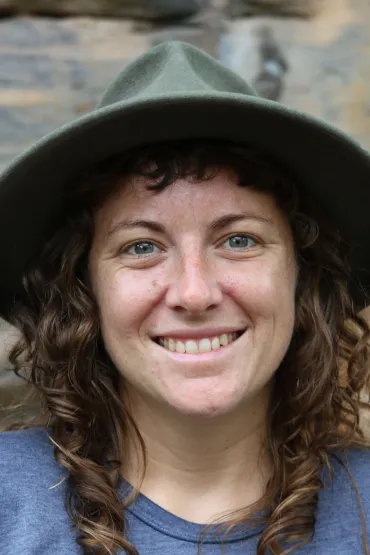Research project title
Looking after Country: Towards an understanding of Indigenous perspectives on evaluating success.
Abstract
The Indigenous land and sea management (ILSM) movement in Australia is an Indigenous-led initiative based on strong and complex obligations to care for Country. Traditional Owners (TOs) and Ranger groups have achieved substantial support through government and non-government funding programs. As these programs mature, ILSM practitioners and their collaborators are grappling with how to evaluate success, a requirement necessary for ILSM to satisfy investment.
To date, there has been little work describing the experience of monitoring and evaluation (M&E) from Indigenous perspectives. This thesis advances the discussion by providing accounts of how TOs and Rangers from two ILSM groups – in the Anangu Pitjantjatjara Yankunytjatjara (APY) Lands in South Australia and at Ngukurr in the Northern Territory – are responding to the evaluation of their ILSM programs and collaborations. Both people-places have government-funded Ranger groups, Indigenous Protected Areas (IPAs), and non-government funded initiatives, each with requisite reporting requirements. The thesis has used background research, and collaborative investigations with TOs and Rangers to observe the activities undertaken and assess what was being achieved from their perspective.
This work clarifies the problem – how to do M&E and strengthen Indigenous governance of Country without extending neoliberal governmentality. While there are tensions between funders, TOs and Rangers, the results show Indigenous agency in expressing priorities in ILSM programs, and through determining the activities and timing of work undertaken. TOs and Rangers gave a high priority to being on Country, performing ceremony, recounting and singing the Tjukurpa (APY Lands) or Drimin (Ngukurr), and maintaining language as integral components of ILSM – in addition to the more conservation-focused activities such as weed or feral animal control.
However, the absence of local language words encompassing monitoring, management or success revealed that conventional M&E reporting may continue the disempowering colonial processes that ILSM aspires to reverse. Social, cultural, and environmental objectives are also not easily defined, for TOs, Rangers, or non-Indigenous funders.
Nevertheless, Indigenous-focused M&E processes can provide further ‘proof of concept’ for Ranger and IPA programs, which have grown exponentially in recent decades. The research indicates that improved communication and understanding about the holistic objectives of ILSM, supported by collaborative governance of ISLM programs, could contribute to the development of fit-for-purpose M&E processes, which support and respect Indigenous evaluative methods and tools.
Research interests
Jennifer Macdonald’s current research is focused on culturally appropriate ways to assess the benefits, risks and uncertainties associated with digital innovation and Artificial Intelligence for environmental decision-making. She is a CDU-CSIRO Postdoctoral Research Fellow and is part of a multi-disciplinary program of joint research activities being undertaken with CSIRO as part of their Future Science Platform Program. She completed her PhD at Charles Darwin University in 2019 and has over 7 years’ experience working with Indigenous communities in South Australia and the Northern Territory, including Kakadu National Park.
